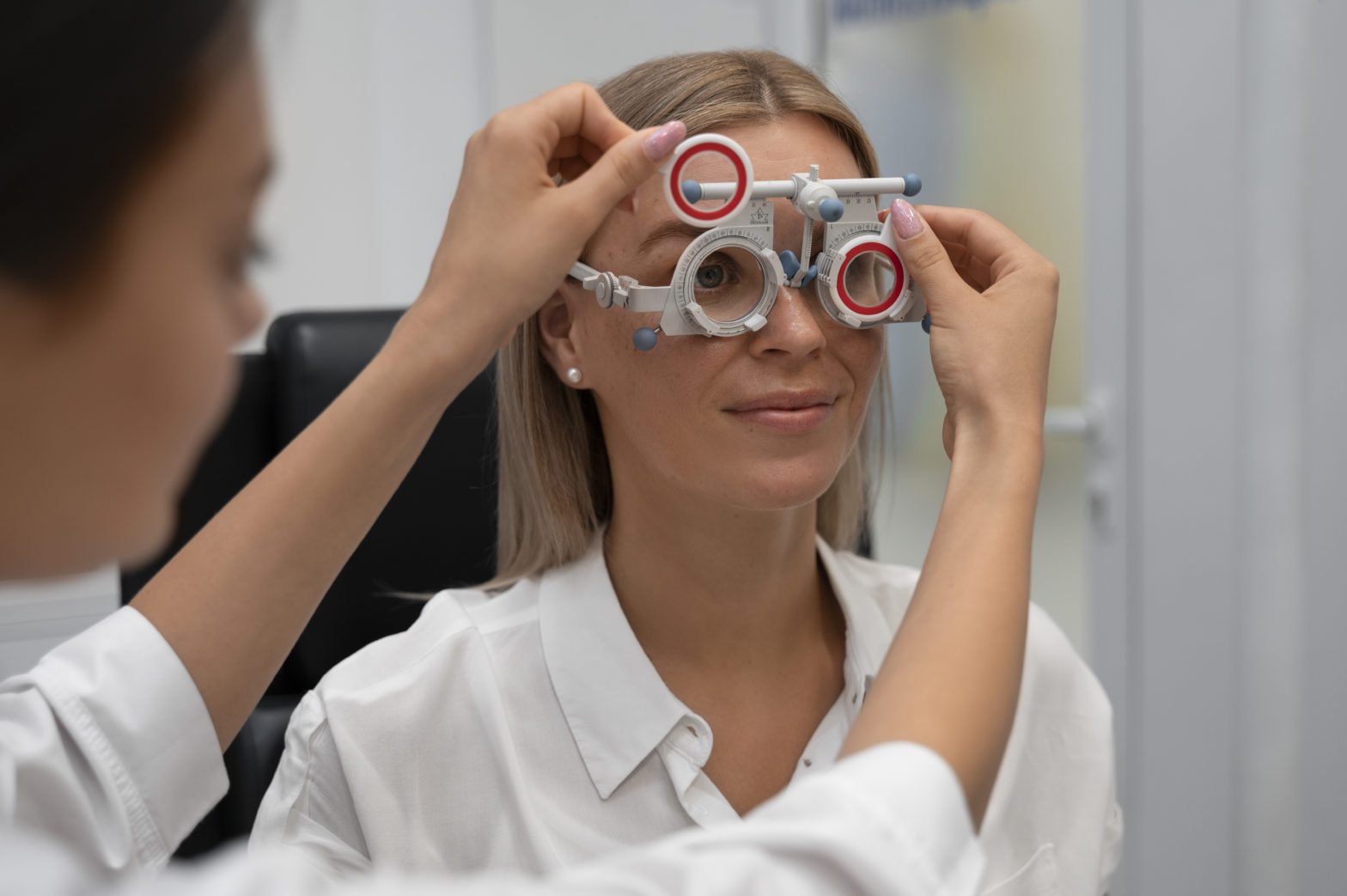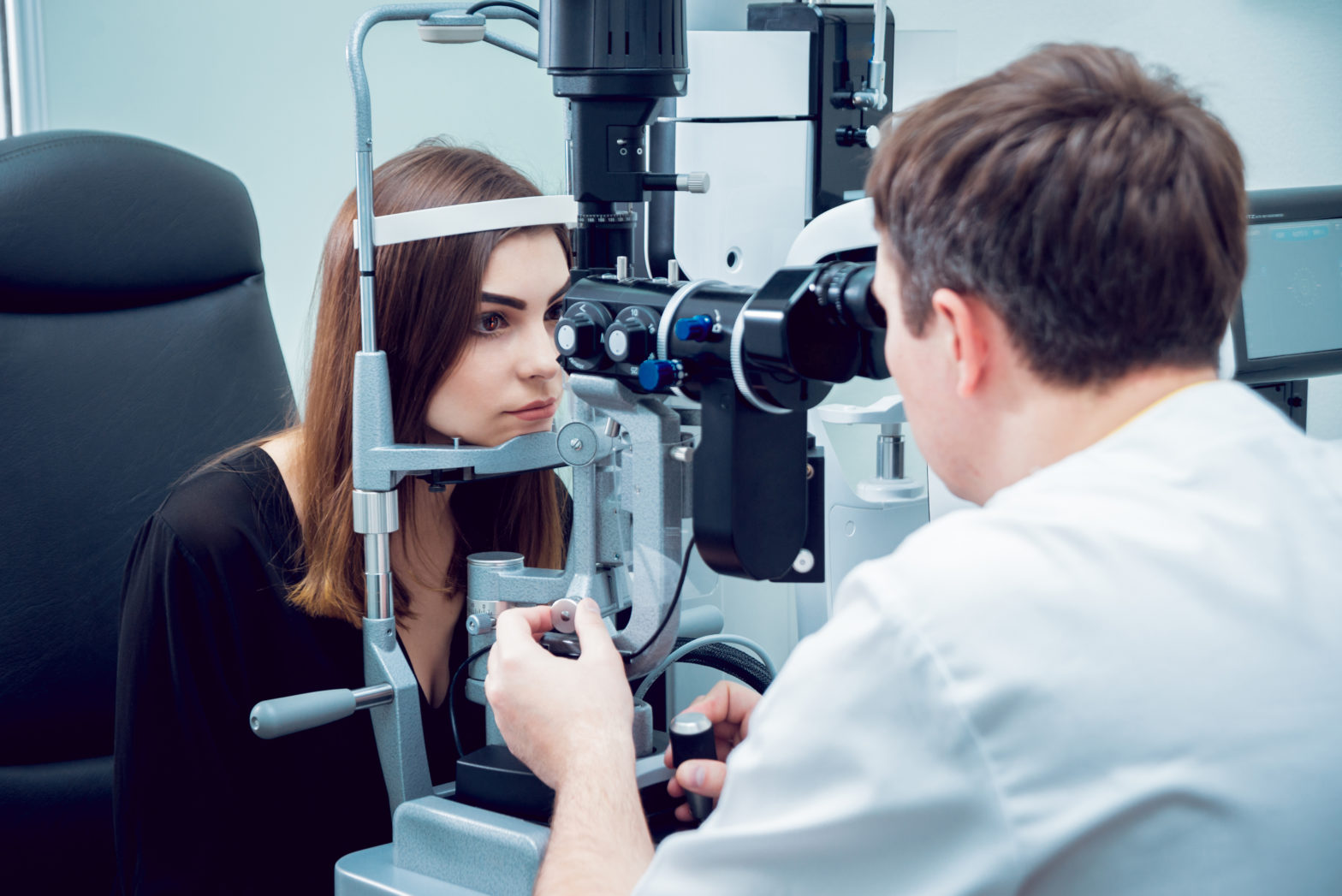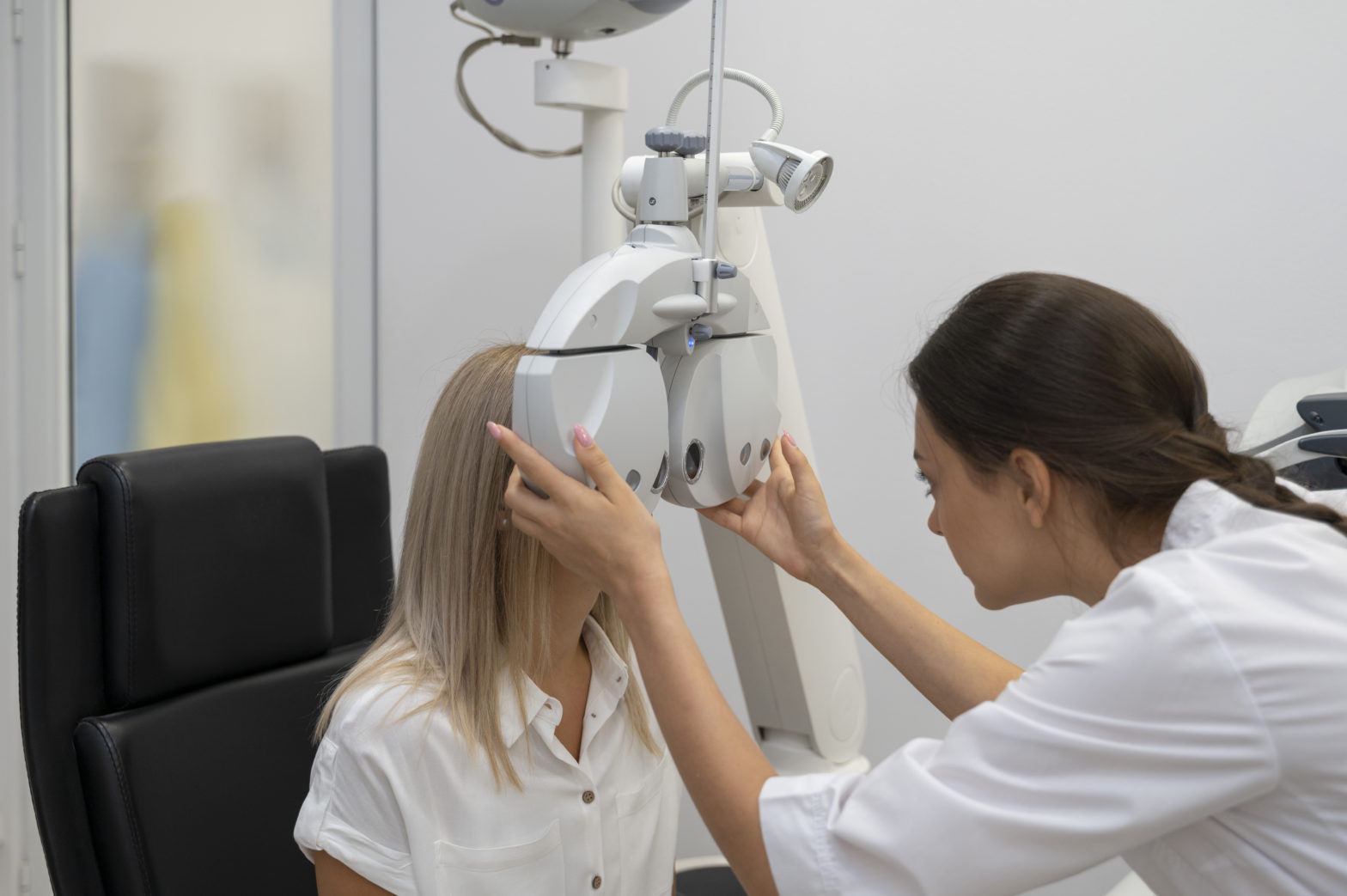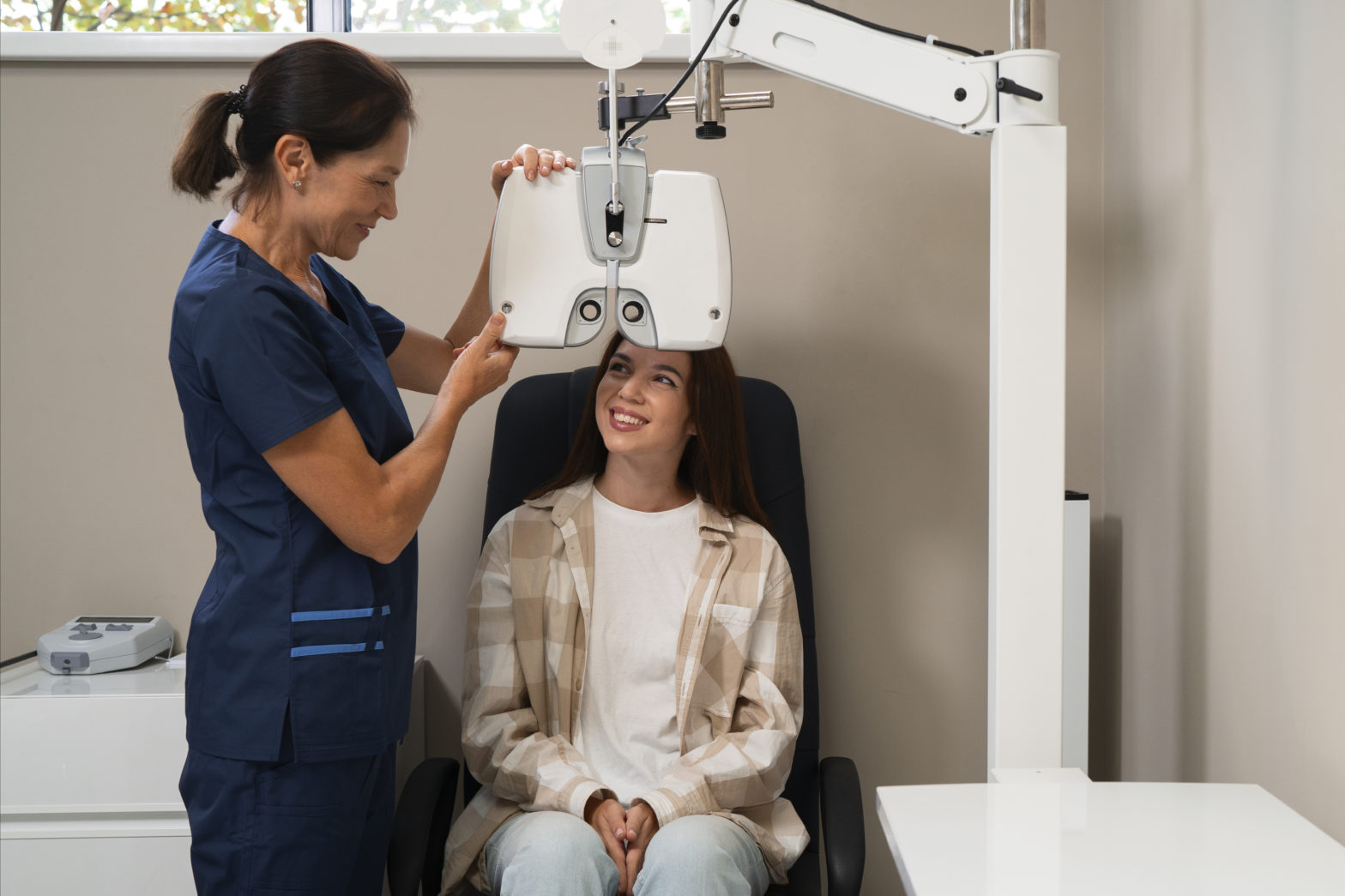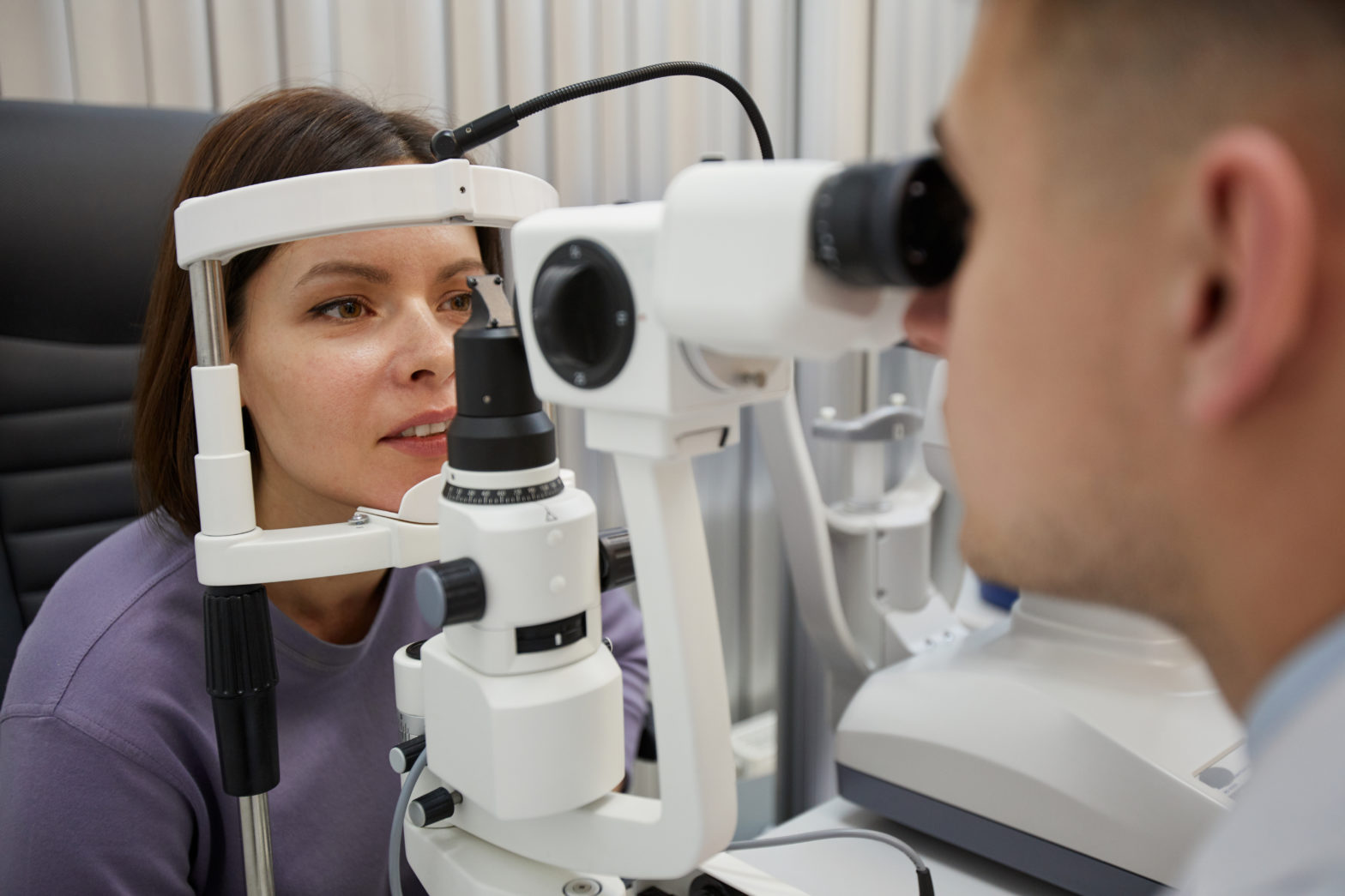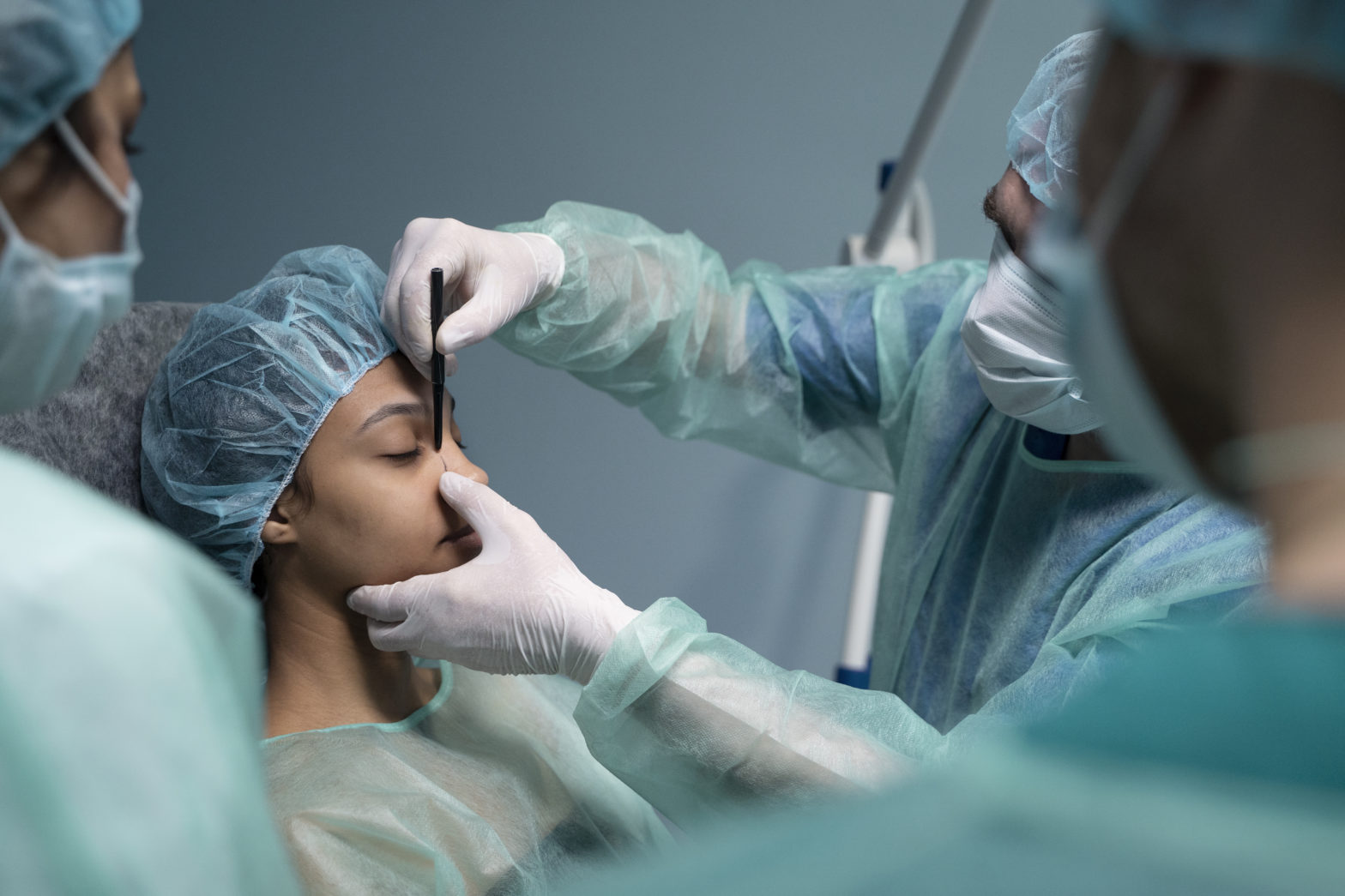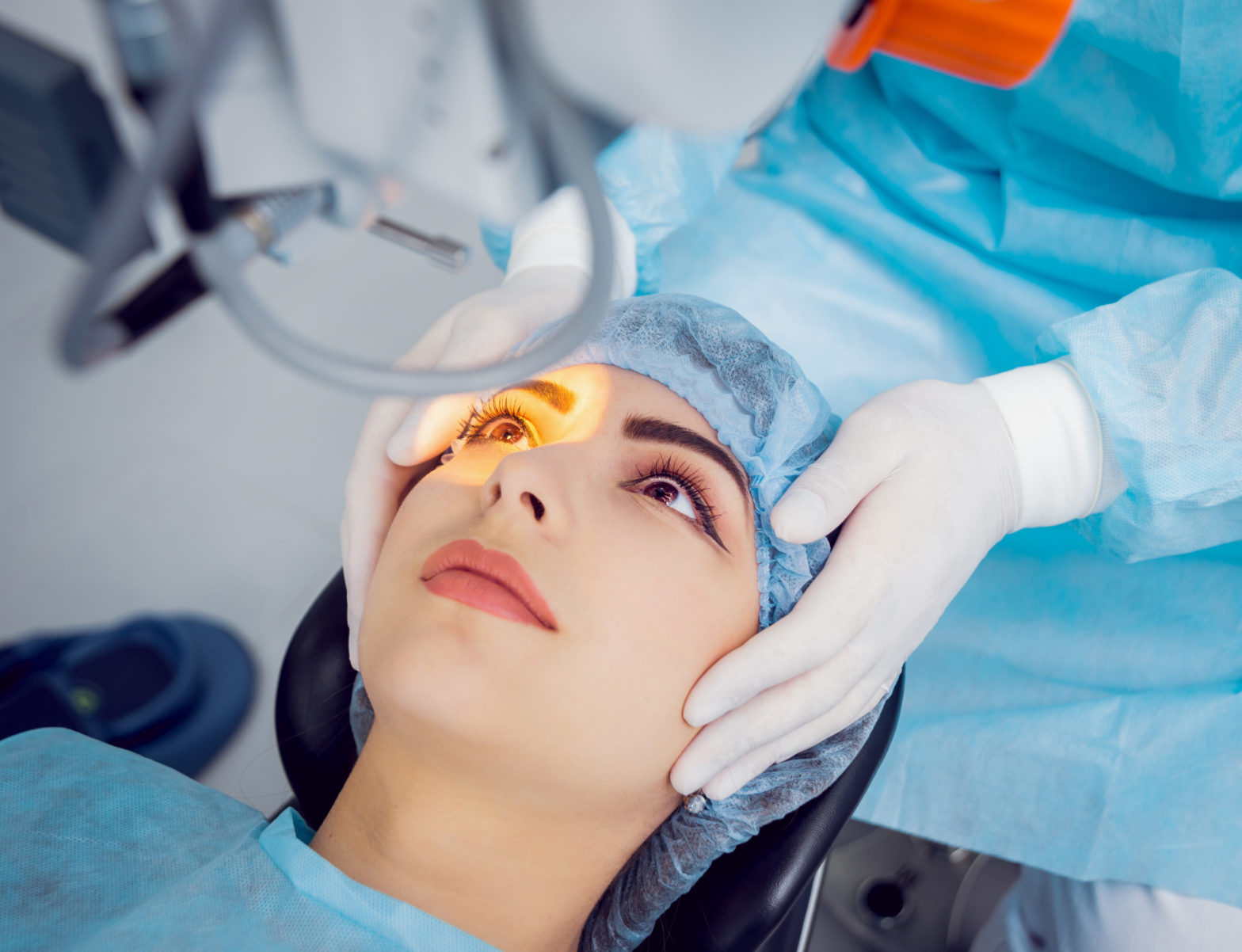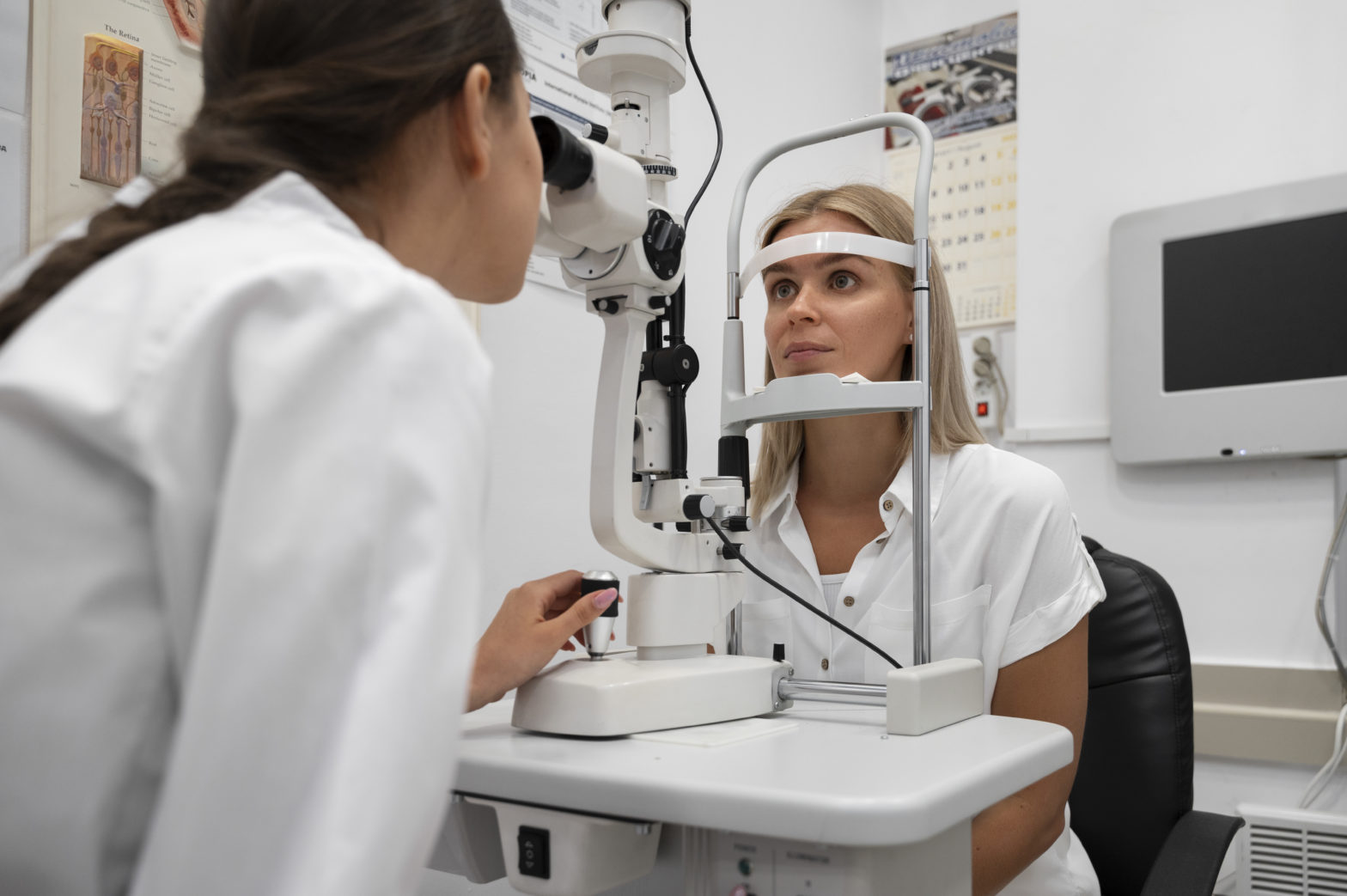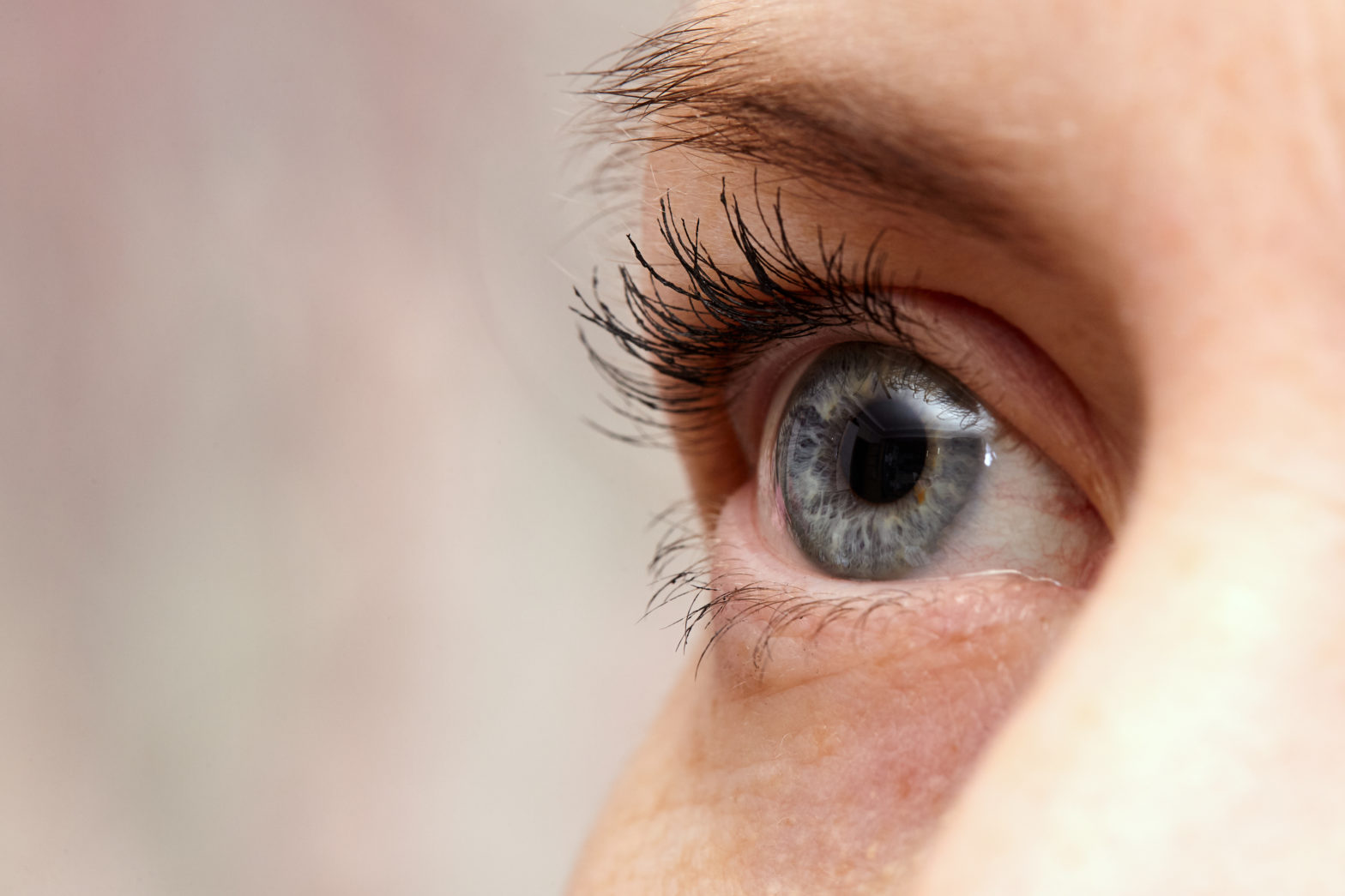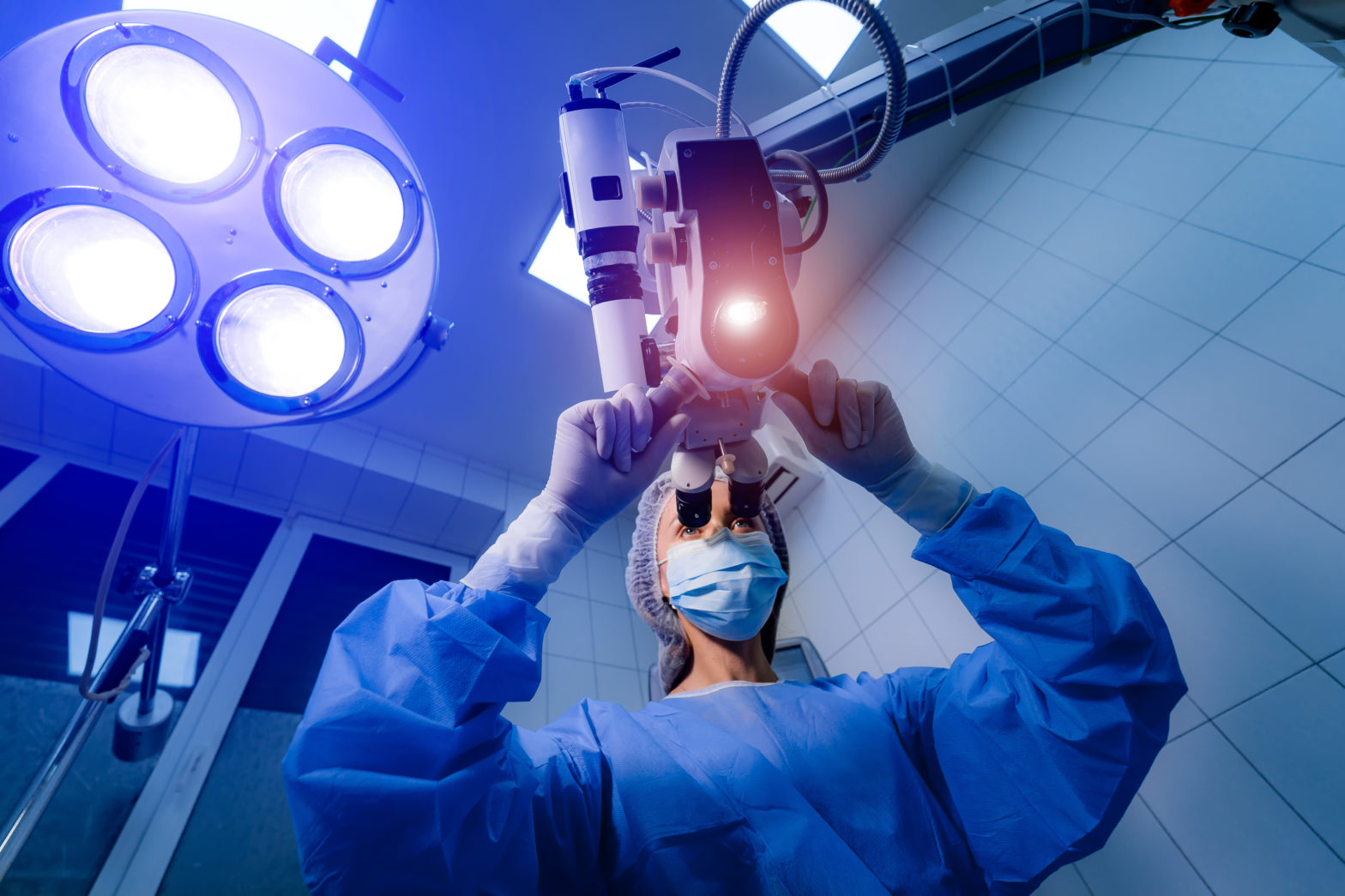Upasuaji wa Lasik ni nini?
Upasuaji wa LASIK (Laser-Assisted In Situ Keratomileusis) ni upasuaji wa jicho maarufu wa leza uliobuniwa kusahihisha hitilafu za kuakisi kama vile kutoona karibu, kuona mbali, na. astigmatism. Upasuaji huu wa leza hurekebisha konea, na kuruhusu mwanga kulenga kwa usahihi kwenye retina, na hivyo kusababisha uoni bora bila kuhitaji miwani au lenzi za mawasiliano.
Watu wengi huchagua upasuaji wa jicho la laser kwa sababu ya ufanisi wake, wakati wa kupona haraka, na usumbufu mdogo. Ikiwa unazingatia upasuaji wa macho wa LASIK, kuelewa utaratibu, manufaa na hatari ni muhimu kabla ya kufanya uamuzi.
Je, LASIK Inatibu Aina Gani ya Masharti ya Macho?
Upasuaji wa LASIK unafaa kwa hali mbalimbali za maono, ikiwa ni pamoja na:
-
Kuona karibu (Myopia)
Watu wenye myopia wana ugumu wa kuona vitu vilivyo mbali kwa uwazi. Upasuaji wa LASIK wa macho hurekebisha hali hii kwa kurekebisha konea ili kuruhusu mwanga kulenga ipasavyo.
-
Kuona mbali (Hyperopia)
Watu wenye hyperopia hujitahidi kuona vitu vya karibu. Upasuaji wa jicho la laser hurekebisha umbo la konea ili kuboresha uoni wa karibu.
-
Astigmatism
Astigmatism hutokea kutokana na konea yenye umbo lisilo la kawaida, na kusababisha kutoona vizuri. Upasuaji wa LASIK hurekebisha kasoro hizi, na kuhakikisha uoni mkali.
Jinsi ya Kujiandaa kwa Upasuaji wa LASIK
Maandalizi ni muhimu kwa utaratibu mzuri wa upasuaji wa macho wa LASIK. Hapa kuna cha kufanya:
-
Acha kuvaa lensi za mawasiliano kwa angalau wiki mbili kabla ya upasuaji ili kuruhusu konea yako kurudi kwenye umbo lake la asili.
-
Panga uchunguzi wa kina wa macho ili kuhakikisha kuwa wewe ni mgombea anayefaa kwa upasuaji wa laser.
-
Epuka kupaka vipodozi vya macho au krimu siku ya upasuaji ili kupunguza hatari ya kuambukizwa.
-
Fuata maagizo ya daktari wako kuhusu dawa na huduma ya kabla ya upasuaji.
Utaratibu wa Upasuaji wa LASIK
Utaratibu wa upasuaji wa macho wa LASIK ni wa haraka na kwa kawaida hukamilika ndani ya dakika 30. Hivi ndivyo inavyofanya kazi:
-
Matone ya nambari hutumiwa ili kuzuia usumbufu.
-
Flap nyembamba ya cornea huundwa kwa kutumia laser ya femtosecond au microkeratome.
-
Konea imeundwa upya kwa kutumia laser ya excimer, kurekebisha makosa ya refractive.
-
Flap imewekwa tena, kuruhusu uponyaji wa asili kutokea.
Wagonjwa wengi wanaona kuboresha maono ndani ya masaa machache baada ya upasuaji.
Athari za Upasuaji wa LASIK
Ingawa Unachohitaji Kujua Kama utaratibu wowote wa matibabu, upasuaji wa jicho la laser una madhara yanayoweza kutokea, ingawa kwa kawaida huwa ya muda mfupi.
-
Macho Kavu:
Ukavu wa muda ni wa kawaida baada ya upasuaji wa LASIK, lakini matone ya jicho husaidia kupunguza usumbufu.
-
Mwangaza na Halos:
Wagonjwa wengine hupata mwangaza au mwangaza karibu na taa, haswa usiku, lakini athari hizi hupotea baada ya wiki chache.
-
Maono yanayobadilika-badilika:
Maono yanaweza kuchukua siku chache au wiki ili kupata utulivu kabisa baada ya upasuaji wa macho wa LASIK.
Nani Hajapendekezwa kwa Upasuaji wa LASIK?
Wakati Upasuaji wa LASIK kwa macho ni ya ufanisi sana, baadhi ya watu wanaweza kuwa wagombea wanaofaa, ikiwa ni pamoja na:
-
Watu wenye konea nyembamba - Konea nyembamba inaweza isiunge mkono urekebishaji unaohitajika.
-
Wagonjwa wenye macho kavu kali - Ukavu uliopo unaweza kuwa mbaya zaidi baada ya upasuaji.
-
Watu wenye maono yasiyo imara - Ikiwa maagizo yako yanabadilika mara kwa mara, LASIK inaweza kuwa haifai.
-
Watu wenye hali fulani za matibabu - Magonjwa ya autoimmune yanaweza kuathiri uponyaji baada ya upasuaji.
Wakati wa Urejeshaji wa Upasuaji wa LASIK
Ahueni kutoka LASIK upasuaji wa jicho kawaida ni haraka. Hapa ni nini cha kutarajia:
-
Saa 24 za kwanza - Usumbufu mdogo, uoni hafifu, na unyeti wa mwanga.
-
Wiki 1 - Uboreshaji mkubwa wa maono, lakini epuka shughuli ngumu.
-
mwezi 1 - Maono hutulia, na vizuizi vingi huondolewa.
-
Miezi 3-6 - Ahueni kamili, na matokeo bora ya maono.
Hatari za Upasuaji wa LASIK
Ingawa upasuaji wa LASIK kwa ujumla ni salama, ni muhimu kufahamu hatari zinazoweza kutokea:
-
Imesahihishwa chini au imesahihishwa kupita kiasi - Baadhi ya wagonjwa bado wanaweza kuhitaji miwani baada ya upasuaji.
-
Kuambukizwa au kuvimba - Athari za nadra lakini zinazowezekana.
-
Ukiukaji wa maono ya usiku - Mwangaza, mng'aro, au miale ya nyota karibu na taa.
-
Matatizo ya Flap - Masuala yanayohusiana na flap ya corneal iliyoundwa wakati wa upasuaji.
Upasuaji wa LASIK ni suluhisho la ufanisi sana kwa wale wanaotaka kurekebisha hitilafu za refractive na kupunguza utegemezi wa miwani au mawasiliano. Kuelewa utaratibu wa upasuaji wa LASIK, madhara yanayoweza kutokea ya upasuaji wa LASIK, na muda wa kurejesha upasuaji wa LASIK kunaweza kukusaidia kufanya uamuzi sahihi. Ikiwa unazingatia upasuaji wa jicho la leza, wasiliana na daktari wa macho aliye na uzoefu ili kubaini kama ni chaguo sahihi kwako.
Maswali Yanayoulizwa Mara Kwa Mara (FAQs) kuhusu Upasuaji wa Lasik
Je, matibabu ya macho ya laser au urekebishaji wa maono hudumu maisha yote?
Ingawa athari za matibabu ya jicho la laser (upasuaji wa matibabu ya LASIK) ni za kudumu, faida zinaweza kupungua kwa muda. Hata hivyo, kwa wagonjwa wengi, matokeo ya upasuaji wa LASIK yatadumu milele.
Ni nani asiyefaa kwa utaratibu wa upasuaji wa macho wa LASIK?
Inashauriwa kuzuia kufanyiwa upasuaji wa jicho LASIK kwa wagonjwa kwenye dawa za kimfumo, kuzuia urejesho kamili wa koni. Sababu zingine za kutofanya upasuaji wa jicho la laser kwa wagonjwa ni hali ya kimfumo. Haya ni magonjwa kama vile kisukari au hali ambapo kiwango cha collagen mwilini si cha kawaida, kwa mfano, ugonjwa wa Marfan. Pia, ikiwa mgonjwa hawezi kutazama kitu kisichobadilika kwa angalau sekunde 60, mgonjwa hawezi kuwa mgombea mzuri wa upasuaji wa macho wa LASIK.
Ninapaswa kutarajia nini kabla ya matibabu ya macho ya laser?
Ukienda kwa utaratibu wa upasuaji wa LASIK, daktari atahitaji tathmini ya awali ya msingi ili kubaini kama wewe ni mgombea anayefaa kwa ajili ya operesheni ya jicho la laser.
Macho huchukua muda gani kupona baada ya operesheni ya jicho la laser?
Inaweza kuchukua hadi miezi 6 kupona kabisa kutokana na operesheni ya jicho la leza. Katika awamu hii, unaweza kuhitaji kutembelea daktari wako kwa miadi kadhaa ya huduma ya baadae. Kunaweza pia kuwa na ukungu katika hatua fulani, lakini ni kawaida.
Kwa kuongezea, itachukua muda kwa macho kutulia baada ya upasuaji. Kwa hivyo, lazima uhudhurie miadi ya utunzaji wa baada ya muda mara kwa mara ili kudumisha uhalali wa dhamana ya maisha.
Ni nini sababu ya kutoona vizuri baada ya matibabu ya laser?
Maono yaliyofifia ni kawaida hadi miezi 6 baada ya matibabu ya macho ya LASIK, haswa kwa sababu ya ukavu wa macho. Inashauriwa kutumia machozi ya bandia angalau mara moja kwa saa na kupumzika macho mara kwa mara ili kuepuka ukavu.
Je, LASIK ina kikomo cha umri?
LASIK haina kikomo cha umri, na upasuaji hutegemea afya ya macho ya mtu binafsi, pamoja na mahitaji ya kuona. Wagonjwa wasio na sababu za kikaboni za kupoteza maono, kama vile cataracts au matatizo mengine ya matibabu, wanaweza kwenda kwa upasuaji wa LASIK kwa urahisi.
Mtu anahisije mara moja baada ya operesheni ya jicho la laser
Mara tu baada ya matibabu ya LASIK, macho yanaweza kuwasha au kuwaka au kuhisi kama kitu kimekwama kwenye jicho. Kunaweza kuwa na kiwango fulani cha usumbufu na maumivu kidogo katika baadhi ya matukio. Daktari anaweza kupendekeza dawa ya kupunguza maumivu kwa hiyo hiyo. Maono yanaweza kuwa na ukungu au ukungu.
Nitawekaje macho yangu wazi wakati wa matibabu ya jicho la laser?
Kuweka matone ya jicho yenye ganzi husaidia kwa hamu ya kupepesa macho kwa wagonjwa wakati wa matibabu ya jicho la laser. Kifaa pia hutumika kuweka macho wazi wakati wa haja wakati wa upasuaji
Je, operesheni ya jicho la laser ni chungu?
Operesheni ya macho ya LASIK haina uchungu. Kabla ya kuanza utaratibu, daktari wa upasuaji atatumia matone ya macho kwa macho yako yote mawili. Ingawa kunaweza kuwa na hisia ya shinikizo wakati wa utaratibu unaoendelea, hakutakuwa na hisia za uchungu.
Uendeshaji wa jicho la laser ni mzuri kwa mtoto wa jicho?
Operesheni ya jicho la laser kwa mtoto wa jicho ni chaguo linalofaa kwani husaidia kurekebisha makosa ya kuakisi kwa kurekebisha konea kwa kutumia leza. Hata hivyo, katika mtoto wa jicho katika kesi, LASIK haitasahihisha uoni hafifu unaosababishwa na ugonjwa huu.
Je, matibabu ya macho ya laser yanaweza kurekebisha maono yaliyofifia?
Baadhi ya watu hawaoni vizuri tangu kuzaliwa kwa sababu ya ulemavu wa kuzaliwa nao, wakati wengine wamepata maono yaliyofifia kadiri muda unavyopita. Katika baadhi ya matukio, uoni hafifu unaweza kurekebishwa kwa msaada wa matibabu ya macho ya LASIK au upasuaji.
Nini kinatokea katika a Contoura LASIK upasuaji?
Katika aina hii ya utaratibu, tishu za uso wa corneal huondolewa kwenye uso wa corneal (sehemu ya mbele ya jicho), ambayo husaidia kudumisha madhara kwa maisha yote na, kwa hiyo, ni ya kudumu. Upasuaji husaidia kurekebisha makosa ya refractive na uwazi wa maono.
Je, upasuaji wa jicho la laser ni wa gharama kubwa?
Kinyume na maoni ya umma, LASIK sio matibabu ya gharama kubwa sana. Ni muhimu kukumbuka kuwa bei ya upasuaji wa macho ya leza inaweza kutofautiana kutokana na sababu tofauti kama vile miundombinu, teknolojia, vifaa, kuanzia Sh. 25000 hadi Sh. 100000.

Usipuuze shida ya macho!
Sasa unaweza kufikia madaktari wetu wakuu kwa kuweka nafasi ya mashauriano ya video mtandaoni au miadi ya hospitali
Weka miadi sasa